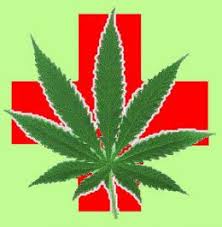 Restricting the availability of legal abortion does not appear to reduce the number of women trying to end unwanted pregnancies, a major report suggests.
Restricting the availability of legal abortion does not appear to reduce the number of women trying to end unwanted pregnancies, a major report suggests.
The Guttmacher Institute's survey found abortion occurs at roughly equal rates in regions where it is legal and regions where it is highly restricted. It did note that improved access to contraception had cut the overall abortion rate over the last decade. But unsafe abortions, primarily illegal, have remained almost static.
Bans 'do not cut abortion rate'
In 1918 Pandemic, Another Possible Killer: Aspirin
 In February 1917, Bayer lost its American patent on aspirin, opening a lucrative drug market to many manufacturers. Bayer fought back with copious advertising, celebrating the brand’s purity just as the epidemic was reaching its peak.
In February 1917, Bayer lost its American patent on aspirin, opening a lucrative drug market to many manufacturers. Bayer fought back with copious advertising, celebrating the brand’s purity just as the epidemic was reaching its peak.Aspirin packages were produced containing no warnings about toxicity and few instructions about use. In the fall of 1918, facing a widespread deadly disease with no known cure, the surgeon general and the United States Navy recommended aspirin as a symptomatic treatment, and the military bought large quantities of the drug.
More...
Has science found the cause of chronic fatigue syndrome?
 Scientists say they have made a dramatic breakthrough in understanding the cause of chronic fatigue syndrome – a debilitating condition affecting 250,000 people in Britain which for decades has defied a rational medical explanation.
Scientists say they have made a dramatic breakthrough in understanding the cause of chronic fatigue syndrome – a debilitating condition affecting 250,000 people in Britain which for decades has defied a rational medical explanation.
The researchers have discovered a strong link between chronic fatigue syndrome, which is sometimes known as ME or myalgic encephalomyelitis, and an obscure retrovirus related to a group of viruses found to infect mice.
All L.A. County medical pot dispensaries face prosecution
 Los Angeles County District Attorney Steve Cooley said today that all the medical marijuana dispensaries in the county are operating illegally, and that "they are going to be prosecuted."
Los Angeles County District Attorney Steve Cooley said today that all the medical marijuana dispensaries in the county are operating illegally, and that "they are going to be prosecuted."There are hundreds of dispensaries throughout the county, including as many as 800 in the city of Los Angeles, according to the city attorney's office. They operate under a 1996 voter initiative that allowed marijuana to be used for medicinal purposes, and a subsequent state law that provided for collective cultivation.
More...
EC Probing Biggest Hospital Company
 The Securities and Exchange Commission has opened a probe into whether the largest hospital company in the world, Hospital Corporation of America, violated securities law by manipulating its books and records, according to documents and people familiar with the investigation.
The Securities and Exchange Commission has opened a probe into whether the largest hospital company in the world, Hospital Corporation of America, violated securities law by manipulating its books and records, according to documents and people familiar with the investigation.
In 2006, HCA, then a public company, was bought by a consortium including its management, the family of former Senate majority leader Bill Frist (R-Tenn.) and three major financial firms for about $33 billion in the largest leveraged buyout ever at the time.
U.S. Losing Ground on Preventable Deaths
Are Americans dying too soon? The answer is yes. When it comes to "preventable deaths" -- an array of illnesses and injuries that should not kill at an early age -- the United States trails other industrialized nations and has been falling further behind over the past decade.
Although the United States now spends $2.4 trillion a year on medical care -- vastly more per capita than comparable countries -- the nation ranks near the bottom on premature deaths caused by illnesses such as diabetes, epilepsy, stroke, influenza, ulcers and pneumonia.
Breast cancer gene discovery 'most important for 20 years'
 Scientists have found a faulty gene linked to half of all breast cancers which experts have hailed as the most important discovery in the disease since the 1970s.
Scientists have found a faulty gene linked to half of all breast cancers which experts have hailed as the most important discovery in the disease since the 1970s.
The finding will help researchers understand how cancer develops and may in future lead to new treatments, they said. Everyone is born with the gene, called NRG1, but in some people it gets damaged during their lifetime and this can lead to cancer developing, it has been found.
More Articles...
Page 174 of 233

 Health Glance
Health Glance






























